Contributors: Aliyah Flamson Rubalcava (UC Santa Cruz), Elias Veran (UC Santa Barbara), Sarah Schecter (UC Los Angeles), Shaun Colegado (UC Merced), and Sophia Chang (UC San Diego), 2024 blog writing contestants
UCEAP alums agree that when it comes to studying abroad, more can be better. Staying abroad longer gives you the opportunity to get over your initial culture shock and really settle into the social customs and environment.
Sure, it can be an adjustment to stay away from your family and friends back home for a year, but the benefits are worth it, and we’ll let student returnees tell you why.
Going abroad for a year was the perfect amount of time, as the initial months felt a bit overwhelming. As I became more comfortable in my new environment, I was able to live without the pressure of knowing I only had a few months. Life gradually fell into a pleasant routine, and this stability allowed me to engage with the local culture of my neighborhood and truly become part of the city.”
Sophia Chang (UC San Diego) studied abroad for a year in Tokyo, Japan
Finding your authentic self
It’s human nature to slide into routines that make our lives comfortable. While a comfort zone isn’t a bad thing, it also isn’t that challenging! Finding your authentic self sometimes takes courage to step outside of those habits and seek new experiences. You might just discover something about yourself you hadn’t anticipated.
Once I adjusted to the slower Spanish lifestyle, I actually relaxed. I didn’t feel I needed to be there for my family, my partner, my friends because I quite literally couldn’t! The self-imposed pressure of being the perfect daughter, sister, partner, student, friend, employee fell away, and I finally realized all those things had completely warped my sense of who I am.
Aliyah Flamson Rubalcava (UC Santa Cruz)
When you step away from what is normal and known, you have the opportunity to reflect on who you want to be and what matters to you. You escape the trap of your comfort zone.
Aliyah Rubalcava (UC Santa Cruz) visiting Girona, Barcelona with her mother
Building real resilience
I considered myself an independent and capable problem-solver before studying abroad, but my year in Paris started a journey of self-growth and improvement that transformed my entire outlook on life and the future.
Elias Veran (UC Santa Barbara)
From learning the public transportation system, to facing the inevitable bout of winter flu on your own, to dealing with the problems of an ancient apartment building (in French!) with a landlord, you’ll be challenged by many experiences when you study abroad.
Those ‘negative’ experiences made me learn about myself, taught me how to adapt to any situation and eventually left me feeling confident and capable of facing any of life’s unpredictable obstacles.
Elias Veran (UC Santa Barbara)
From Tourist to Local: Living Like a Resident
The longer you live somewhere, the more comfortable you are with everything from meeting up with friends to settling into your favorite spot to study. Fall turns into winter, and winter turns into spring—soon enough, everything that once surprised and confused you becomes second nature.
You also have enough time to become a different kind of tourist. Your new city will feel like home, and once those places become familiar you’ll have the opportunity to take weekend trips to other cities and countries with international friends from all over the globe.
Studying anywhere in Europe allows for easy, fast, and affordable travel to other countries during breaks from studying. I took full advantage of Europe’s small size and traveled to the Czech Republic, Spain, Portugal, and Italy. In Prague, the Christmas markets, towering castles, and cozy cafes brought a winter charm I had never felt in California. Barcelona provided warmth and allowed me to reconnect with my second language and family. Lisbon and nearby Sintra was all about long strolls through the hilly city and breathtaking views of the majestic coastline. Southern France and Italy, my last stops before heading home, satisfied a long-held desire to swim in the Mediterranean. Short distances, smart planning, and student hostels ensured that these trips did not break the bank, and many of my friends traveled even more than I did!
Elias Veran (UC Santa Barbara)
Celebrating through the seasons
Imagine what it would be like to join a cricket match on the Queen’s Birthday in Melbourne, Australia. Or dance in the parades at Carnival in Rio de Janeiro, Brazil or Venice, Italy. Or wander through a maze of glittering snow sculptures in Sapporo, Japan or ice sculptures in Harbin, China.
Photo credit: Shaun Colegado (UC Merced) snow in Tokyo, Japan
One semester abroad means you will be gone for four to five months. Two semesters abroad means you are gone for nine to 10 months (longer if you add a summer program). That’s enough time to see all the seasons of your new home country.
When you study abroad for a year, you’ll get to celebrate all the holidays and traditions of your new home country.
Photo credit: Shaun Colegado (UC Merced), cherry blossoms on the International Christian University campus in Tokyo, Japan
Developing true independence
As you develop new skills and overcome challenges, your sense of independence and self-reliance naturally increases – and these skills make you more valuable in your personal and professional life.
Patience, rapid problem solving, the ability to bounce back from an issue and communicate clearly and confidently are all traits that are beneficial to a workplace that values teamwork, resilience, and adaptability. Studying abroad teaches you how to be independent because you can’t fall back on your regular support system. This means you will learn to trust yourself and maintain a determined attitude even when you feel like quitting. That newfound confidence and experience with the ‘uncomfortable,’ can guide you in any career path.
Aliyah Flamson Rubalcava (UC Santa Cruz)
Making home away from home
Where did the time go? No seriously, how on earth have 300 days gone by already?
Shaun Colegado (UC Merced)
Unlike a quarter or a semester, if you study abroad for a year, there’s a point where you simply get used to things that started as uncomfortable and new. You’re no longer confused by the expanse of the Tokyo Metro or struggle to communicate with your landlord in French, and it’s replaced with the familiar patterns of habit and understood routines.
At that moment, you realize that what was once unfamiliar and challenging is your normal way of life.
Photo credit: Shaun Colegado (UC Merced) Enoshima, Japan
Eight months in, what sticks with me is the reality that I can speak Japanese so much better than when I first arrived. I was able to gain my independence. I built a strong network of friends despite not knowing anyone at first. It’s not the sight of Tokyo Tower that has captured my heart either; it’s biking along the Tama River for miles that has. Finding that kind of happiness here has helped me realize I can find happiness at home, too.
Shaun Colegado (UC Merced)
Photo credit: Shaun Colegado (UC Merced) Tama river bike route
Conquering fears and finding your strength
The fears that come with study abroad are real. It may feel overwhelming to be away from family and friends, manage a completely new culture, and handle life’s responsibilities on your own.
I’m not going to sugar coat it, the idea of staying abroad for a year absolutely terrified me after I gleefully applied to spend a full academic year in one of the most popular and creative cities in the world, Barcelona. At one point, the fear of the unknown and thoughts like ‘what have I done?’ got so bad, I broke down at Thanksgiving dinner. Not my finest moment.
Aliyah Flamson Rubalcava (UC Santa Cruz)
You might even conquer a fear of paperwork!
Some people are afraid of flying or spiders—I’m afraid of paperwork. And yet, somewhere between zigzagging around LA to find notaries for my Italian paperwork and visiting the Japanese Consulate to simultaneously apply for a visa and the National Japanese Pension Service while also applying for an exemption to receive a pension, I realized that all that paperwork would make the difference between being a tourist and actually living there. It was the beginning of my learning some important cultural lessons like Italian conviviality—a lifestyle shift that prioritizes human connections, enjoying life’s simple pleasures, and the creating of lasting memories through shared experiences.
Sarah Schecter (UC Los Angeles)
Sarah Schecter (UC Los Angeles) studied abroad in Italy, Japan and Spain!
Skyrocketing personal growth
The value of personal growth lies in its ability to transform not just specific aspects of your life, but your entire approach to living. It empowers you to take control of your life, continuously improve, and strive for your full potential.
I have no idea how many times I had an encounter that made me uncomfortable – all while I was still refining my Spanish and learning Catalan! Simple things I would have never thought twice about became suddenly foreign: going to the doctor, asking for the check, and even communicating with teammates on the soccer field. I had to learn to adapt fairly quickly, and I couldn’t give up. This taught me how to keep a cool head in environments I couldn’t naturally navigate.
Aliyah Flamson Rubalcava (UC Santa Cruz)
Personal growth is an ongoing process that can lead to a more fulfilling, balanced, and successful life in whatever way you define success for yourself.
While studying abroad for just one year, I feel that I made friends and memories for a decade. I now have the confidence and resilience to live abroad after graduating, something I hadn’t considered before.
Sarah Schecter (UC Los Angeles)
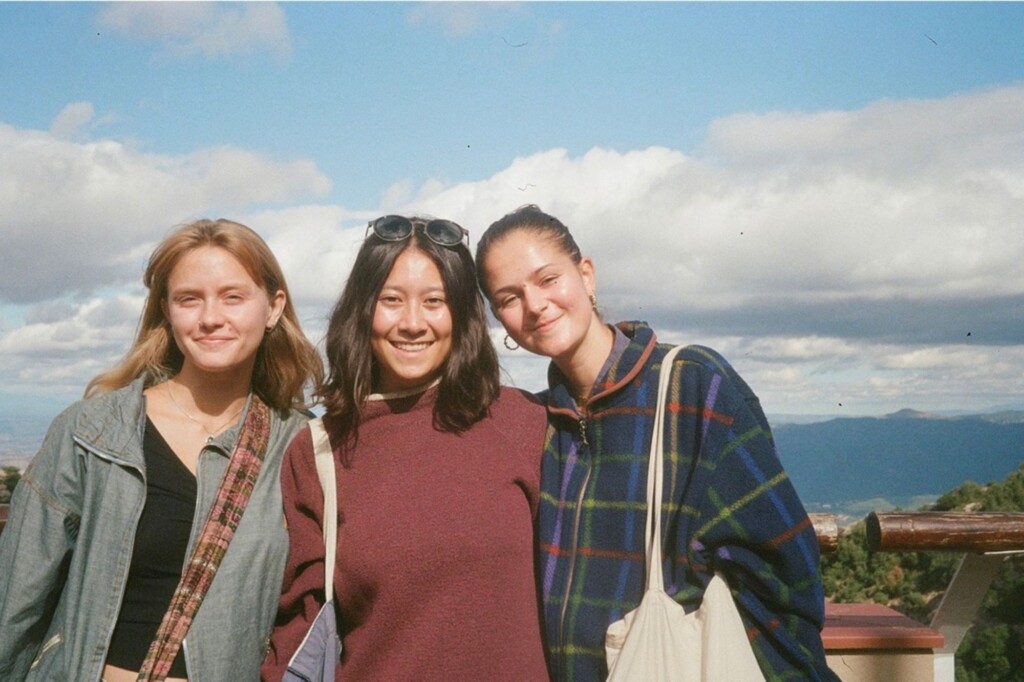
Sarah Schecter (UC Los Angeles) and friends on a study abroad field trip to Montserrat, Italy
Interesting facts
UCEAP has a high number of students who extend, meaning they decide to stay longer once abroad or apply to other programs often in other countries. In fact, our numbers are so high that we typically have semester students get pre-approved by their campus departments before they go (it saves time in the long run). In 2024 alone 125+ students on study abroad decided to extend.
Yes you can go abroad, come back for awhile, and then go abroad again—all while making progress toward your degree. In the past three academic years, 673 UCEAP students went abroad a second or third time. With some strategic planning, you can spend multiple semesters abroad and still graduate on time.
For those reading this who are unsure they are ready to study abroad for an entire year, rather than a semester, I refer to my friends who left in December wishing they could say longer!
Elias Veran (UC Santa Barbara)
Learn more about how to manage studying abroad for longer and maximize your experience:
- From strangers to family – how to build community while you study abroad.
- Lessons from a solo traveler studying abroad and exploring Europe.
- A year of language mishaps and awkward moments that lead to unexpected rewards in Spain.

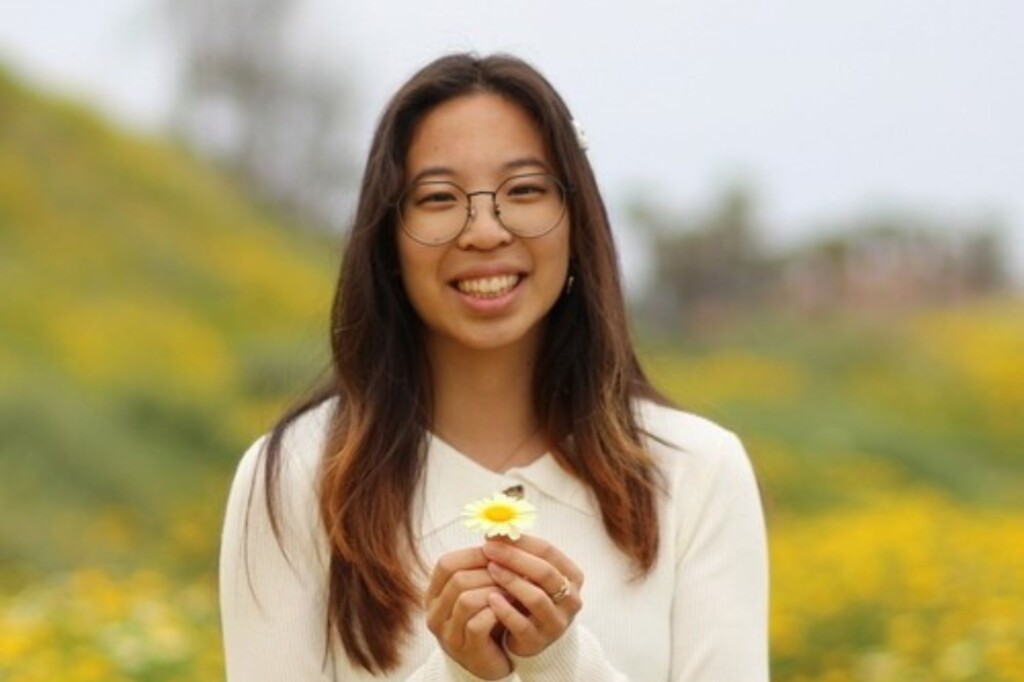
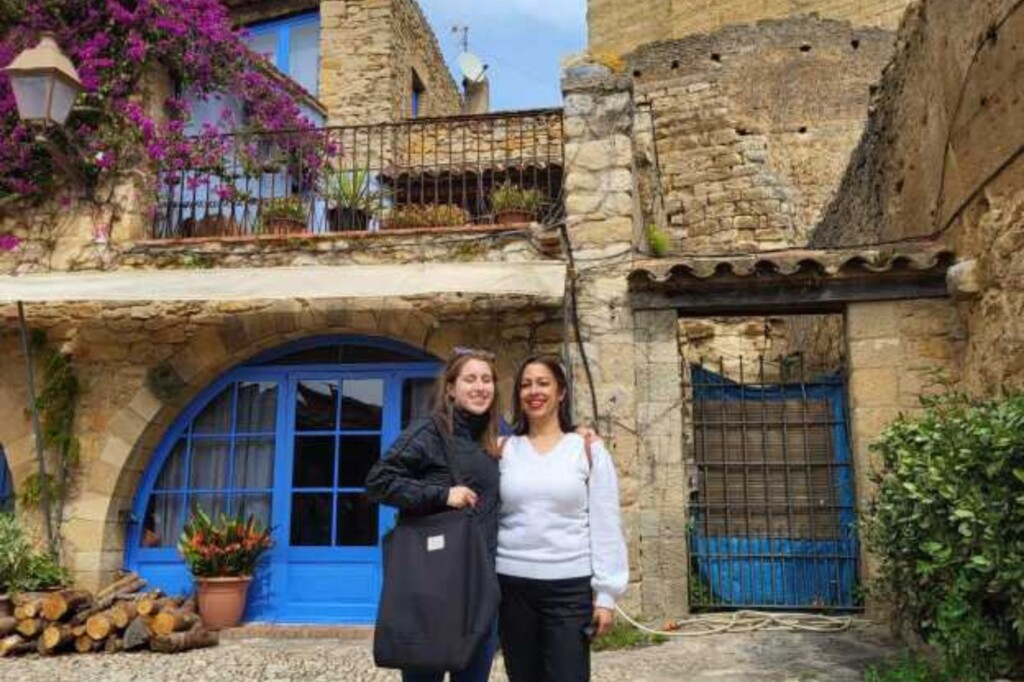
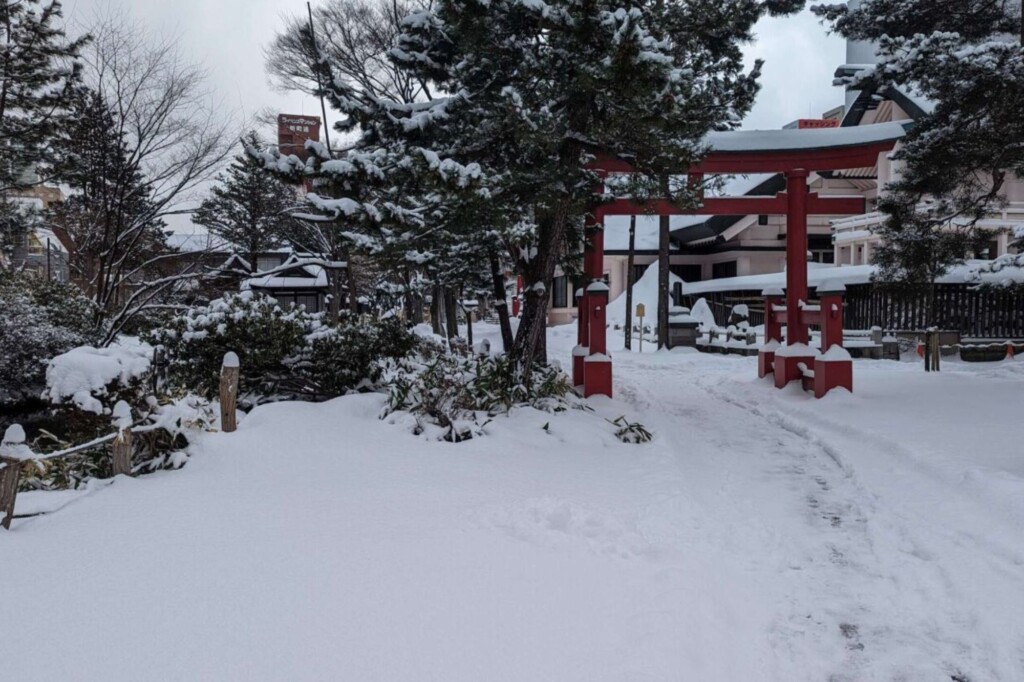



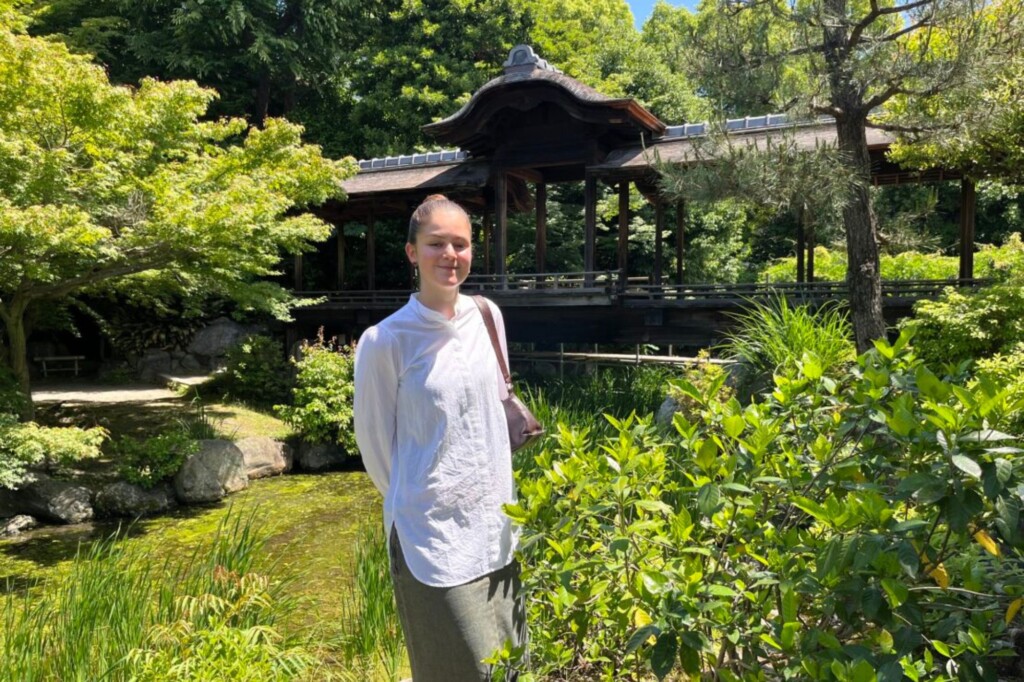

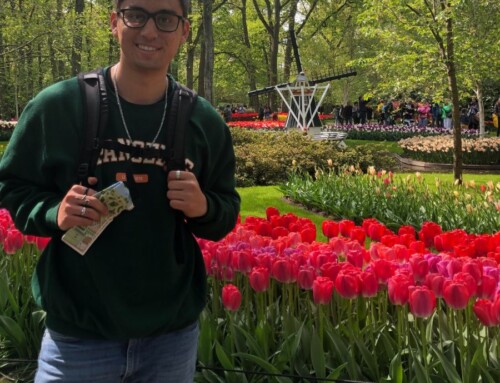
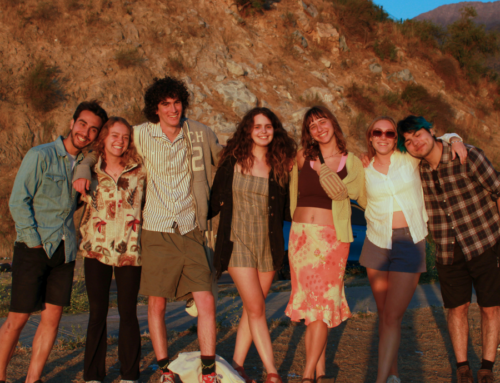



Leave A Comment